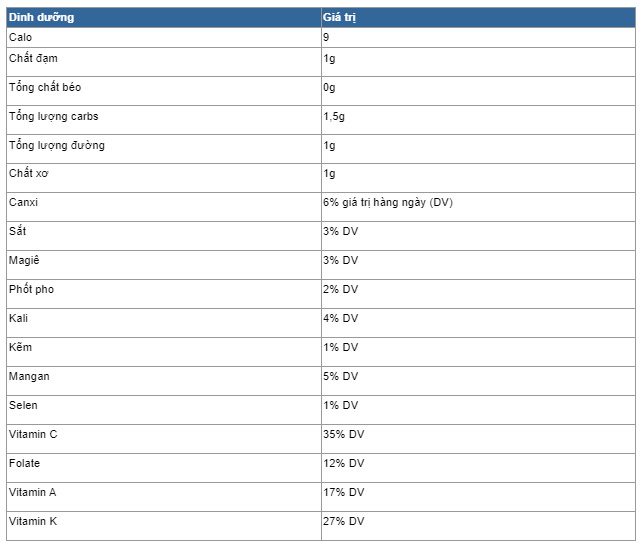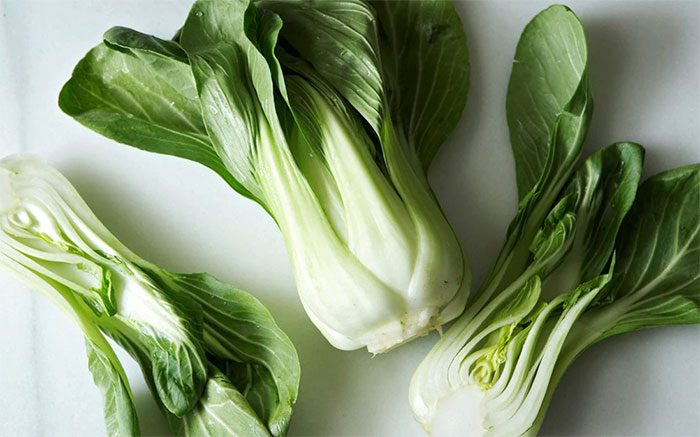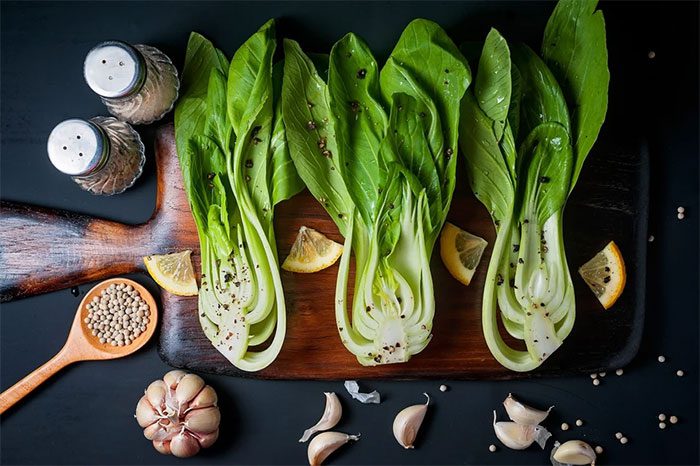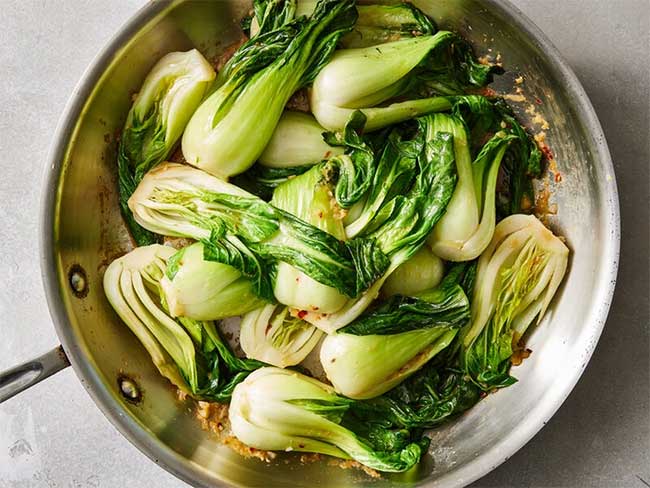Choy Sum is rich in antioxidants, which can help prevent many serious diseases.
Choy Sum belongs to the brassica family, along with kale, Brussels sprouts, and broccoli. As known, brassica vegetables contain compounds that fight cancer and can help reduce inflammation, regulate blood sugar levels, promote weight loss, and boost cardiovascular health. Choy Sum offers similar benefits, but at a low cost, is currently in peak season, and has a delicious crisp taste. Therefore, you should choose this vegetable to regularly include in your diet.
1. Nutritional Value of Choy Sum
According to Healthline, 70 grams of chopped Choy Sum contains the following nutritional components:

2. Health Benefits of Choy Sum
Choy Sum is very rich in antioxidants, which can help prevent many serious diseases.
Cancer Prevention
Similar to other brassica vegetables, Choy Sum has anti-cancer properties due to sulfur-containing compounds called glucosinolates and their breakdown products known as isothiocyanates. This compound works through anti-inflammatory and antioxidant mechanisms.
Moreover, Choy Sum is also a rich source of selenium, a trace element believed to reduce the risk of prostate cancer, lung cancer, esophageal cancer, and stomach cancer.

Choy Sum contains anti-cancer compounds (Image: Internet).
Supports Thyroid Function
The selenium in Choy Sum is beneficial for normal thyroid function. These glands, located at the front of the neck and shaped like a butterfly, play an important role in metabolism and growth.
A study showed that low blood selenium levels are associated with thyroid conditions such as hypothyroidism, autoimmune thyroiditis, and goiter.
Good for Bones
Many minerals in Choy Sum, including calcium, phosphorus, vitamin K, and zinc, can help maintain bone health.
The bones are the primary storage location for calcium, which helps enhance the strength and structure of bones. Unfortunately, the body cannot produce calcium on its own, so it must be consumed through the diet. Choy Sum provides a highly absorbable form of calcium.

Choy Sum provides a highly absorbable form of calcium.
Choy Sum also contains a small amount of zinc and iron, both of which support bone health. Zinc plays an important role in collagen production, a protein found in joints and bones essential for bone strength and structure. On the other hand, iron is necessary for the metabolism of vitamin D, a top priority in preventing osteoporosis.
Good for Cardiovascular Health
Adding Choy Sum to a balanced diet can help reduce the risk of developing cardiovascular disease. Leafy greens like Choy Sum contain potassium, magnesium, and calcium, all minerals that help regulate blood pressure.
Choy Sum also contains a significant amount of vitamin C, which is associated with reducing death rates from cardiovascular diseases. The antioxidant and anti-inflammatory properties of Choy Sum, due to its vitamin C content, can promote healthy blood flow by maintaining the responsiveness and integrity of blood vessels.
Moreover, Choy Sum is also a good source of folate and vitamin B6. Studies have found that these substances can prevent the accumulation of homocysteine. This compound can damage blood vessels and increase the risk of heart disease and stroke if accumulated.

Choy Sum contains minerals and vitamins that help prevent cardiovascular disease. (Image: Internet).
Weight Management: Choy Sum is low in calories and rich in essential micronutrients, supporting weight control efforts and overall health.
Additionally, its high fiber and water content make this brassica vegetable filling, which can enhance feelings of fullness and reduce appetite, thus limiting daily calorie intake.
3. Potential Side Effects of Eating Choy Sum
Although Choy Sum offers several health benefits, it can also pose disadvantages for some people when consumed in large quantities.
- In its raw form, brassica vegetables, including Choy Sum, contain an enzyme called myrosinase that breaks down glucosinolates.
Some breakdown products of glucosinolate can inhibit your body’s absorption of iodine, a substance crucial for thyroid function.
However, cooking Choy Sum will deactivate the myrosinase enzyme, so thyroid inhibition is not a concern when Choy Sum is cooked.
Choy Sum is a rich source of vitamin K, which can affect the effectiveness of blood-thinning medications because vitamin K plays a role in the blood clotting process.


















































